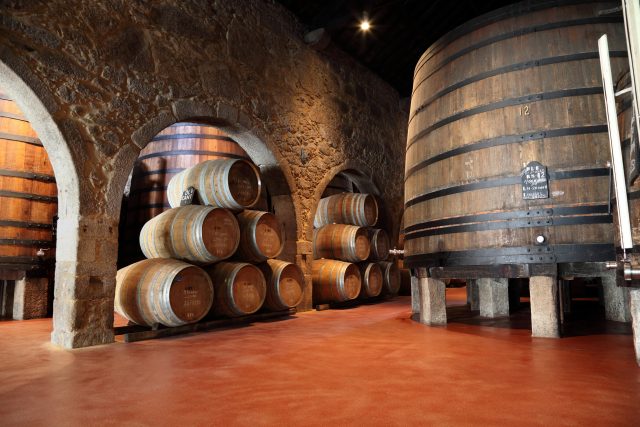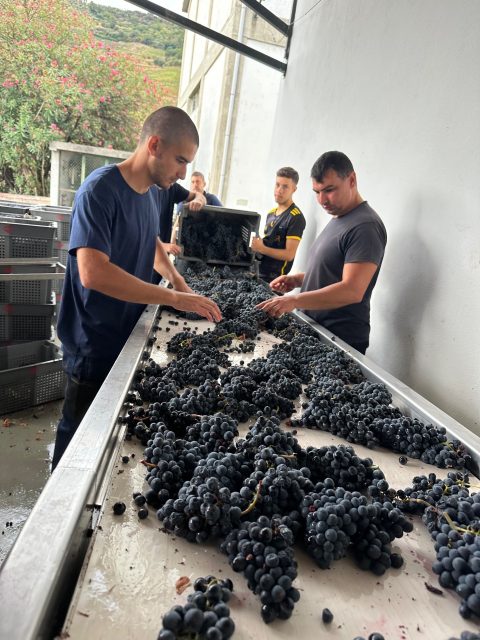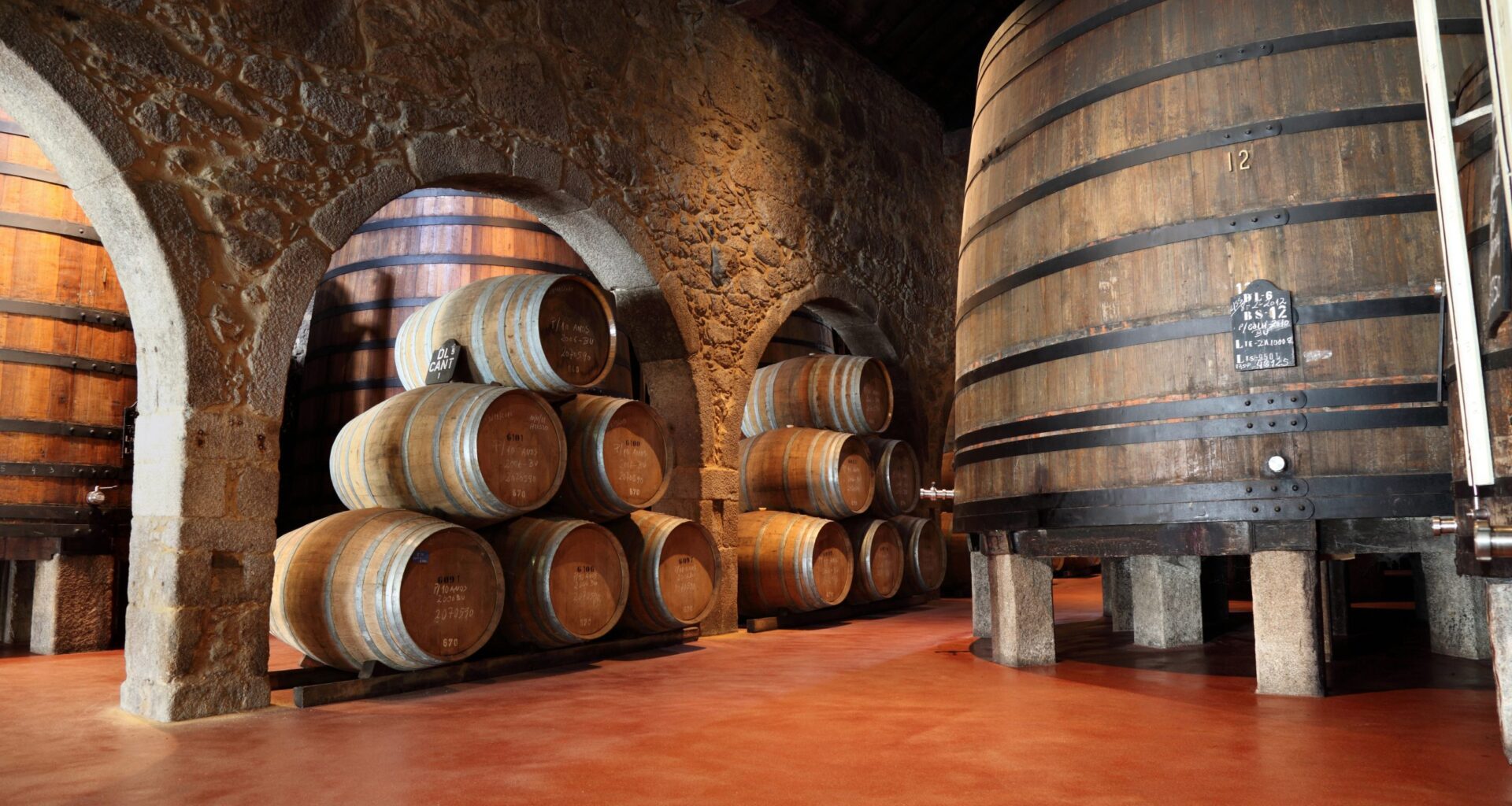Port lovers should brace themselves for significant price hikes as the result of a dramatic increase in Portugal’s minimum worker wage, warns one of the category’s largest producers. Gabriel Stone reports.

Adrian Bridge, CEO of The Fladgate Partnership, has highlighted the “devastating impact” on many Douro farmers of higher employment costs. The Portuguese minimum monthly wage has risen by 45% since 2019, from €600 to €870, with a further 17% increase to €1,020 due by 2028.
Setting this change in a wider economic context, he observes: “Had wages risen at the same rate as inflation then they would be 43% lower today than they are.”
Bridge notes that the Portuguese government’s action had particularly negative implications for professional farmers “who must employ workers” rather than the region’s many smallholders who invariably, he argued, “are using their own labour”.
Left vulnerable
The Fladgate Partnership is in turn particularly vulnerable to any cost increases that must be passed on since the company augments its own production with grapes purchased from around 74 farmers, all of whom are professional growers. In this mountainous and therefore very labour-intensive region, Bridge suggests that “fewer than 7,000 farmers manage 10 hectares or more.” Nevertheless, he insists, “Professional farmers are the future of the Douro Valley”, describing their vineyards as being “where the quality grapes are grown.”
At a time when Port’s overall volume sales are in long-term decline – “although special category is increasing,” notes Bridge – he predicts that many farmers will go out of business or, more likely, sell up. This trend is likely to be exacerbated by the fact that many Douro vineyards planted with the help of subsidies during the 1980s are now in need of replanting.
As for the question of who would buy any farms that came up for sale, Bridge suggests: “I think that the major Port companies, ourselves included, do not have the appetite for more vineyards at the moment. This is not likely to change until the beneficio [Port production quota] system is sorted out.”
Bridge also cast doubt on the idea that outsiders might seize the opportunity to claim a stake in the Douro. “New operators may arrive but we have already seen some Brazilians come and go,” he commented.

Economic imbalance
With no sustainable solution to this economic imbalance in sight, Bridge remarked: “The question, as always, is how much crisis is actually needed before the political will is achieved to facilitate change.” Even then, he acknowledged there remains “the problem of getting the Port and table wine industry to agree on what that change looks like.”
Far more realistic, suggested Bridge, is the scenario that “prices will rise and the period of such high quality Port being so cheap in the UK will come to an end.”
db previously spoke to Rob Symington of the Symington Family Estates dynasty about other economical challenges faced in the Douro, including “out-of-date regulatory framework regarding how many grapes can be produced each year, and the price of those grapes.”
In recent years the beneficio quota has fallen from 116,000 pipes (a 550-litre barrel) in 2022 to 90,000 pipes in 2024, which at the time represented the lowest level since 1993. This decrease reflected the decline in global Port sales, which fell by 13% in volume between 2022 and 2023. Although 2024 sales fell by a more modest 1.6%, the beneficio for the 2025 harvest was tightened still further to just 75,000 pipes.
While growers’ valid oversupply fears were illustrated by protests in the Douro this summer, Bridge has long been at the forefront of calls for the beneficio to be scrapped altogether in order to create a level playing field with the Douro’s table wine production, where volumes remain unrestricted.
Up for reconsideration
“Politically it’s great; all these little growers get to make some Port,” he acknowledges of the quota system. However, the beneficio also means that The Fladgate Partnership’s top-rated Category A vineyards, which supply its Taylor’s, Fonseca and Croft brands, may now turn only one third of their harvest into Port.
With the ongoing volume decline in overall Port sales offering little prospect of this beneficio being relaxed, Bridge confirms that he was at last being forced to reconsider a long-held stance against using the company’s Port vineyards to produce table wine.
Although stressing that such a move “is by no means guaranteed”, he reveals that Bordeaux oenologist Pascal Chatonnet, consultant to the group’s recent acquisitions Ideal Drinks and Quinta do Portal, had recently turned his gaze on The Fladgate Partnership’s eight Port properties. These include Taylor’s Quinta de Vargellas, Fonseca’s Quinta do Panascal and Croft’s Quinta da Roêda.
Explaining his previous reluctance to explore this route, Bridge comments: “We didn’t want to create something in conflict with our Port.”
He adds that historically there had also been little demand for Douro table wine from the company’s international distributors. Today however, as Port quotas tighten, perceptions about Portuguese wines have become increasingly positive.
While table wine may be one solution to the Douro’s complex economic challenges, Bridge insists: “We want to feel our way forward because we genuinely don’t know”. If his company does follow others down this route then, he emphasises, “we want to make a product that is commensurate with the quality we have in our Port.”
Related news
Will Portugal authorise new Defensor grape?

